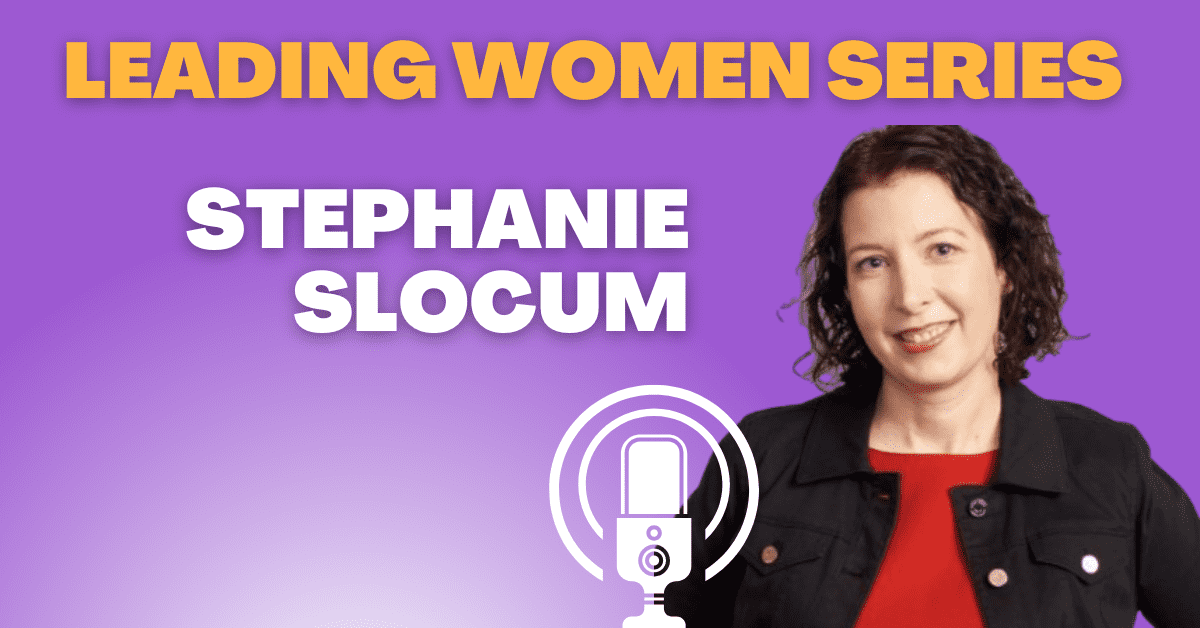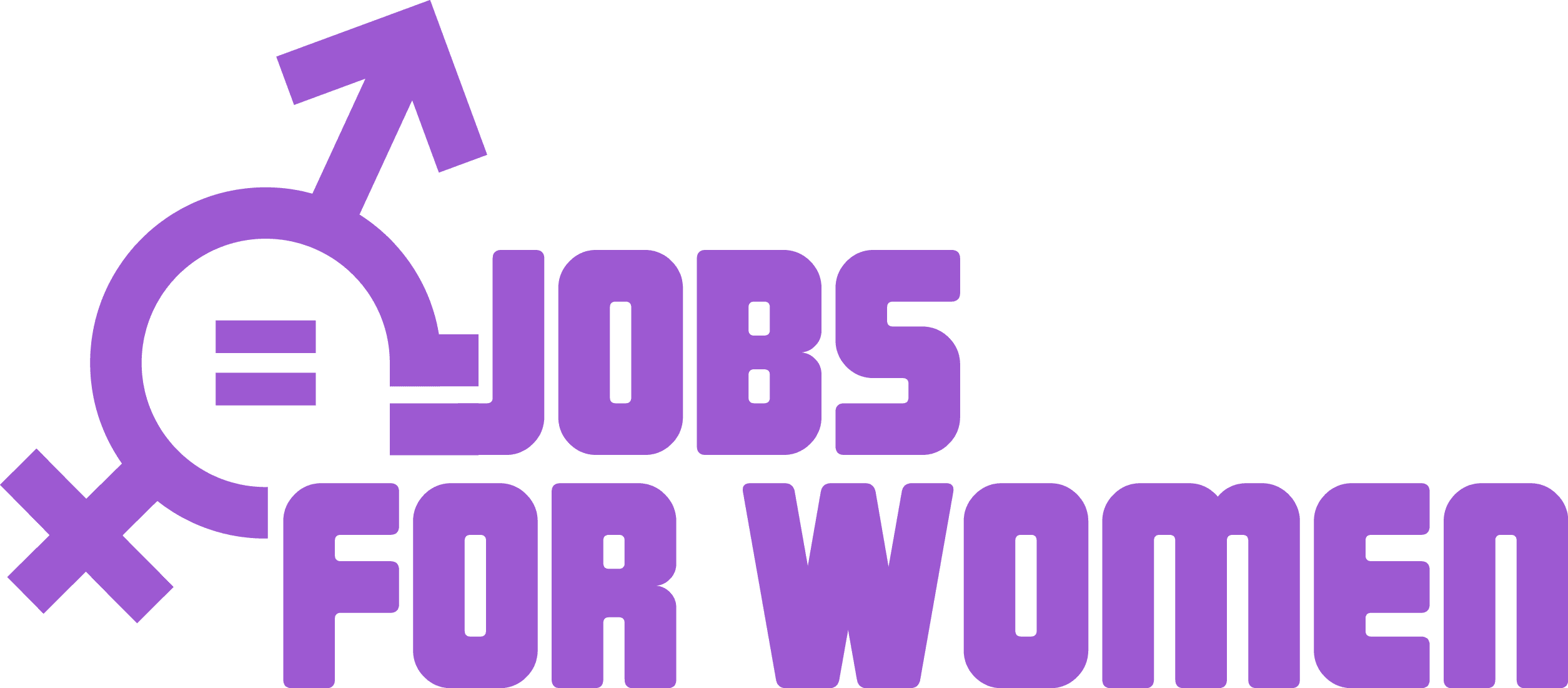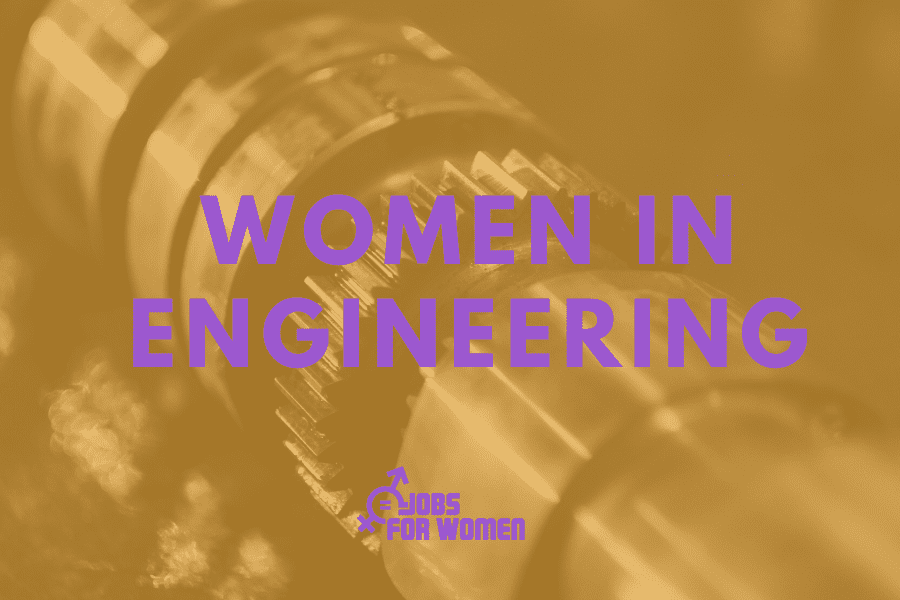
It was a pleasure to welcome Stephanie Slocum to our Women in Engineering webinar.
With 40% of women engineers leaving or never entering the field and 78% of STEM women reporting gender discrimination in primarily male workplaces, we need change. Jobs for Women has invited three industry-leading figures for this very special Women in Engineering webinar.
In this webinar, you will learn why diversity is urgently needed in engineering to drive innovation. At the current rate of progress, gender parity among entrants to engineering degrees will not be achieved until 2085.
Stephanie Slocum: I’m excited to be here. So I am Stephanie Slocum. As you can probably tell by my voice. I am based in the United States and my background is in architectural engineering, many people say “I’ve never heard of that engineering degree”, so I have a bachelor’s in that. I worked in the design of building structures. So essentially I designed the part of buildings that held them up for 15 years and then
I ended up writing a book to help other women succeed in this field and that ended up launching a business where now I get to help women like you succeed in the workplace. So I’m super focused on retention issues and helping organisations retain and engage their women.
I also do some one-on-one coaching so that business is four years old and then I’m also a mom. I have three kids, I have a 13 year old, a ten year old and a seven year old – all girls. And so I’m extra passionate about this issue because I want to help be the change that we need to see because when I entered the industry I was a bit blindsided by some of the things that went on. I hadn’t really encountered a lot of, maybe poor attitudes towards women. I was in University College, it wasn’t until I got out into the workforce that I thought oh my goodness, I’m getting treated differently than I’m seeing my male counterparts and how can I overcome that. So I’m excited to share some some ways you can do that.
Zoë Haydn Jones: What was the engineering industry like now compared to when you began your career?
Stephanie Slocum: I don’t think there has been a big shift and the shift is accelerated. When I was starting out people commented saying “oh you’ll have no problem finding a job, they need women” and that narrative has not changed in the last 20 years and I’ve heard the narrative for decades about, needing more women, but now we finally have research showing us the different leadership competencies women bring to the table, there is an article I think in Forbes which is my favourite where they state that women have objectively more leadership competencies than guys do yet when we look at who’s in charge of all of our tech and engineering companies it’s usually guys. and so if people have been saying, they want women for a while yet, the behaviours have to change but we are definitely seeing a shift in awareness. But when I started, it was much more of you’re trying to fit in with the work environment where you as a woman feel like you don’t fit. I wish I could say that fast forward to now and it’s, you completely different and we are more open to allowing everybody to show up as themselves at work. The reality is, I talk to women every day. That is not the case for them. And so, the analogy I like to use here is most of us, if we’re looking for our lifelong partner, we don’t marry the first person we meet, right? And so, for most of us like trying out different jobs, sometimes trying out different sectors and realising that whatever engineering degree you have, it opens the door to all sorts of other things.
I loved your statistic about the Fortune 500 CEOs, having engineering – I worked in a field where it’s very much, a mixture of technical and non-technical. I worked my way up to an executive-level position in that field. Before I founded my own company and I was very client-facing and so it was a perfect role for me of being able to communicate with a lot of clients on the things that I had designed, built – working on infrastructure projects. And you know I have friends that went a very technical route and I have friends that completely pivoted engineering industries from infrastructure to tech. Some of them are in public policy now and so your engineering degree, it’s like a gateway to bigger and better things. I think having that support around you, whether it’s role models or people that have your back is like the critical missing link for a lot of people that drive them out of the industry.
Zoë Haydn Jones: Can you tell us more about your book She Engineers, there’s a lot about mentorship and community, can you tell us why you set it up and what you’re working on?
Engineers Rising is almost a bucket list item. I had to write a book that summarised all the things that I was mentoring and helping other people with. And so for anyone listening I think the idea of following your curiosity wherever your path goes, it’s a super common theme in my career and I think some of the most interesting, people, I know in any field like that, that piece is how you get to a place where you say I love everything about my work and I’m excited to show up for work every day. And so I started with a book and then I moved into group programs because I realise that some of this path can be very lonely and I think most women when you go into an engineering field you have a really good work ethic, you do not survive university without one and not
majoring in engineering you have this idea that you can do this – if I just work harder I’ll make it work. That becomes very lonely if there us a lack of support. I had always thought, if I just work hard, my hard work will stand for itself. I didn’t know how to do things like negotiate, my salary – I wanted to create a place where both individual women could come if they were frustrated and wanted to learn all these skills, you know? Negotiations, speaking out for yourselves like, how do you, you know, put yourself in a place where you can get the high profile projects that you really want to work on with companies that care about advancing and retaining women.
One of the stats you didn’t show is in the US 40% of the women who graduate with engineering degrees drop out of engineering, which, if you really think about that means that they invested all that time and effort, and energy getting the degree and some of them ended up working in the field and then they left. And so that’s really the problem I’m super focused on solving. And a big piece of that is helping people understand that all of us have had one or two, or three or ten bad experiences, therefore recognising that, it’s not you. You have unique skills, gifts and talents you bring to this field that we really really need. I really want to help women rise up through the ranks of their firms and be successful because I think how we solve this problem is with more women in positions of power.
I do want to bust one myth because I feel like even this is not changed either, when I talk to people, okay, why don’t we have more, why is the retention rate as bad as it is? Why has the retention rate changed even as we’ve brought more and more women into the field? More people are graduating with engineering degrees, the retention and the percentage of women retained has not changed in some sectors. It’s actually gone down. and so in the last 20 years since I graduated from college, we know that we can do something about this but it’s moving yourself around to figure out where you fit and I sometimes people come and say, oh, I had this bad experience in a job and now I think I’m not cut out for the industry again” – if that happens, if that happened to anyone, that’s reading this, if you’re concerned about that happening to you. It’s not you, it’s the organisation. Find a new job, find mentors, find support. There are organisations out there that will support you. It’s just a matter of finding them and I’ve also had the experience where it’s a good organisation but it just doesn’t fit me. And so, I think that’s another piece of the puzzle.
We need the specific gifts and talents that women are more likely to bring to the field. Engineering is all about teaching, a way of thinking, of problem-solving of applying that technical skill set for the benefit of society in the world. I think connecting those two things; when I was coming up through school it was all about you have to love math and science. Let me tell you, math was actually my lowest grade, all the way up through high school. I did give up in college once I got into my major and it was much more applied versus theoretical, but It’s a way of thinking, enough problem-solving. And so I think there does need to be a little bit of a rebranding of what engineers are and what engineers do, because it’s not, you know, a person sitting in a garage with their hoodie coding by themselves.



